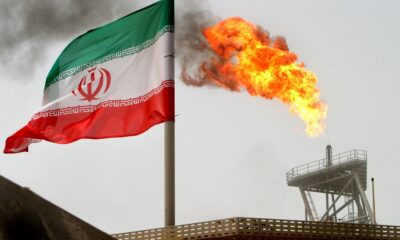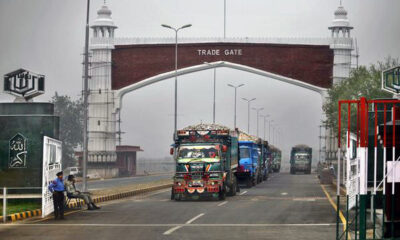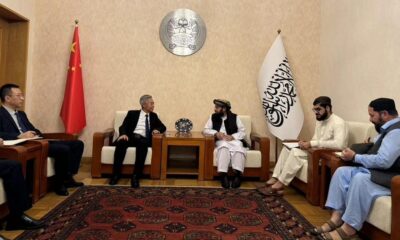Latest News
IEA bans import of low-quality oil

Herat customs officials at Islam Qala border say that they have stopped dozens of tankers carrying low-quality oil in the past few months, adding that the import of low-quality oil has been completely banned.
According to Islam Qala officials, tankers carrying petroleum products are tested daily for quality at this border crossing and only then are the vehicles allowed to enter the country.
The Herat Police Command’s Serious Crimes Department emphasized that serious action will be taken against those who continue to import fuel and low-quality food.
The oil that is being imported to the country from Iran is checked by the Standards Department and is fully tested by the facilities and devices we have; therefore, if the test result is negative, tankers will not be allowed to enter, said Shafiqullah Samim, deputy of Herat’s Islam Qala Customs.
“Last week, 80 oil tankers entered the market, but we will not allow them to enter the market until the center gives permission.”
However, Herat Police Command’s serious crime management unit has recently taken the issue of low-quality oil imports seriously, and in the past few months, more than ten tankers carrying low-quality oil have been refused entry.
“We have general supervision over all economic resources such as ports, customs and airports, and we pursue bribery, embezzlement, and abuse cases, and after careful evaluation, we forward the files of the offenders to the justice and judicial centers,” said Qari Abdulbasit Saeed, an employee of Herat’s serious crime management unit.
On the other hand, some residents of Herat have welcomed this decision of the local officials of this province, saying that the goal of improving the environment and preventing air pollution is needed to prevent the import of low-quality oil.
“Low-quality oils are introduced into the country’s markets, which unfortunately destroys the environment and harms motor vehicles and motorcycles,” said Aziziullah Seddiqi, a Herat resident.
Previously, Herat Police Command’s serious crime management unit identified and seized hundreds of tons of low-quality oil inside the city, and also blocked the gate of an oil refinery.
Latest News
Mujahid: We will investigate Afghan prisoner’s death in Iran
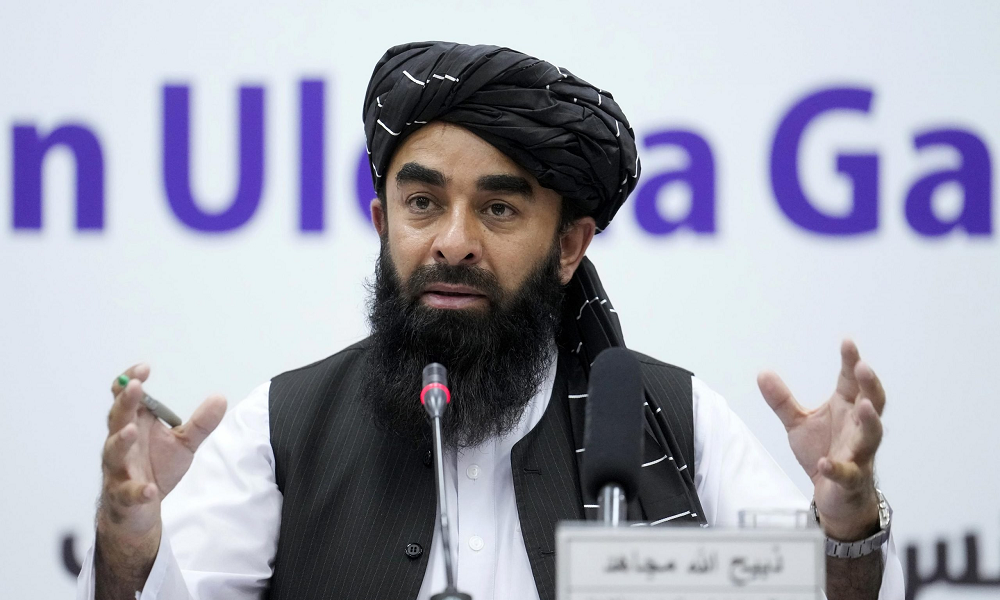
The Islamic Emirate’s spokesperson, Zabihullah Mujahid, responded to the death of an Afghan prisoner who had gone on a hunger strike in Iran’s Ghezel Hesar Prison, saying that the case is being pursued.
“We are concerned about the condition of Afghan prisoners in other countries, and we are following up on the case that occurred in Iran. It is regrettable. We are making our final efforts. Host countries must uphold all principles regarding migrants and treat prisoners properly,” said Mujahid.
The Afghan prisoner, identified as Nabi Bayati, died following a hunger strike in protest against the behavior of prison officials at Iran’s Ghezel Hesar Prison.
Iranian media reported that Nabi Bayati cited “discriminatory and degrading treatment by prison authorities” as the reason for his hunger strike.
According to reports, in recent days, the prisoner had gone on a hunger strike in protest against the decision of the authorities and their degrading behavior after being transferred to Unit One of the prison, which is considered one of the most overcrowded and tense sections of the facility.
Iranian media also reported that Bayati and three other prisoners were initially transferred to a room known as “closed-door” due to accusations of involvement in a fight, and were later moved to a high-tension unit following the intervention of one of the prison’s deputy officials.
It has also been reported that after the prisoner announced his hunger strike and despite his explicit warnings, prison authorities not only ignored his warnings, but as a punitive measure, placed him in the hallway of Ward 9, a public passageway for inmates, without access to basic facilities.
However, Iranian media reported that the Afghan prisoner died after four days of hunger strike, during which no attention was given to him by the Iranian authorities.
Latest News
Afghanistan, Iran and India to hold trilateral meeting on Chabahar port
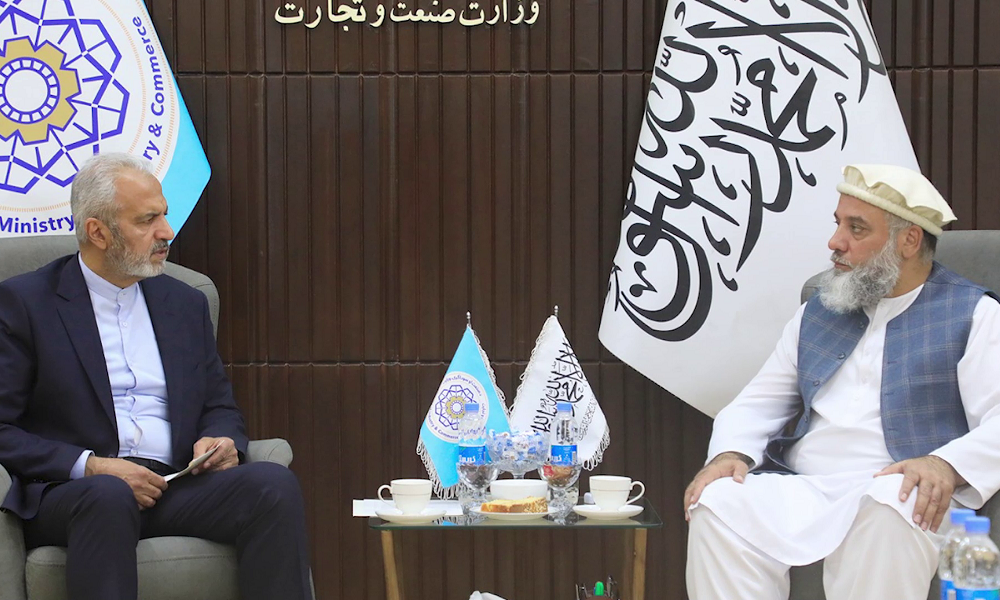
The Ministry of Industry and Commerce has announced that a trilateral meeting between Afghanistan, Iran and India regarding the Chabahar Port will be held in the near future.
The acting Minister of Industry and Commerce Nooruddin Azizi met with Alireza Bikdeli, the acting ambassador of Iran in Kabul, to discuss the upcoming trilateral meeting on Chabahar Port, the launch of the Farah–Mil 78 road project, investment in the Khaf–Herat railway line, and boosting trade via the Mahiroud route, according to a statement issued on Thursday by the ministry.
The two sides also discussed the imminent visit of Iran’s Minister of Industry, Mines, and Trade to Afghanistan and the convening of the seventh Joint Economic Cooperation Commission.
“During this meeting, the two sides discussed the visit of Iran’s Minister of Industry, Mines, and Trade to Afghanistan, the holding of the seventh Joint Commission on Economic Cooperation, the preferential trade agreement between the two countries, increasing Afghan exports, enhancing the role and activity of the joint chamber of commerce, the formation of a joint investment committee, Iranian companies’ interest in the Abu Hanifa exhibition, organizing joint exhibitions, and industrial tours for Afghan companies in Iran, as well as the trilateral meeting between Afghanistan, Iran, and India on Chabahar Port,” the statement read.
In the meeting, Bikdeli also expressed the interest of Iranian companies in participating in the Abu Hanifa exhibition and in hosting exhibitions for Afghan companies in Iran.
Meanwhile, Iran is currently one of Afghanistan’s key trade partners in the region, and trade relations between the two countries continue to grow stronger with each passing day.
Latest News
MCC Chief: Afghan cadres sent to China for AI training

The Ministry of Communications and Information Technology (MCIT) says the Director General of Chinese mining company MCC on Thursday met with Najibullah Hayat Haqqani, the acting minister of the ministry that a number of Afghan cadres were sent to China to receive training not only in the field of artificial intelligence but also to acquire skills in mining and management.
In this meeting, Hayat Haqqani said that Afghanistan is striving to make progress in cooperation with regional countries, particularly in the field of technology, and specifically in artificial intelligence.
Hayat Haqqani, referring to the growing importance of artificial intelligence globally, emphasized the effective use of this technology to improve services and facilitate affairs.
“In this meeting, discussions were held about telecommunications, technology, and technological advancements in the world, particularly artificial intelligence, which is currently being used increasingly around the globe,” said Enayatullah Alokozay, the spokesperson for MCIT.
Alokozay added that the Ministry of Communications is working to achieve significant accomplishments in the field of technology in Afghanistan through cooperation with neighboring and regional countries.
During the meeting, Hayat Haqqani also gave assurances regarding resolving communication issues in the Mes Aynak area in Logar and reiterated the ministry’s commitment to enhancing the capacity of Afghan cadres, especially in the field of artificial intelligence and to providing the necessary groundwork for the growth of technology in the country.
-
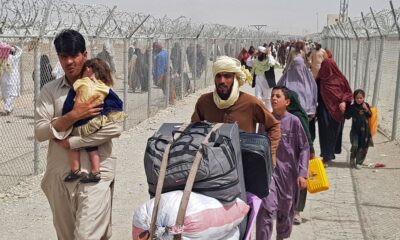
 Latest News5 days ago
Latest News5 days agoOver 250,000 Afghan refugees return home from Pakistan and Iran in April
-

 Business5 days ago
Business5 days agoChinese company keen to invest $50 million in automobile industry in Afghanistan
-

 Sport5 days ago
Sport5 days agoAfghanistan climb to No.7 in ICC ODI rankings
-

 Regional4 days ago
Regional4 days agoIran’s foreign minister urges restraint in India, Pakistan standoff
-

 Latest News4 days ago
Latest News4 days agoCabinet Meeting convened to discuss Afghanistan’s population census plan
-

 International Sports4 days ago
International Sports4 days agoIPL 2025: Seven teams fighting for four spots
-
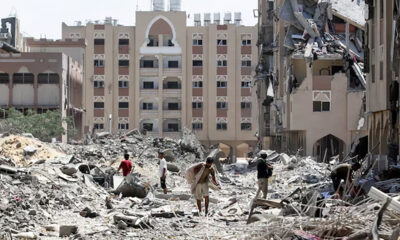
 World4 days ago
World4 days agoIsrael may seize all Gaza in expanded operation, officials say
-

 Tahawol5 days ago
Tahawol5 days agoTahawol: Economic activities in Afghanistan discussed


